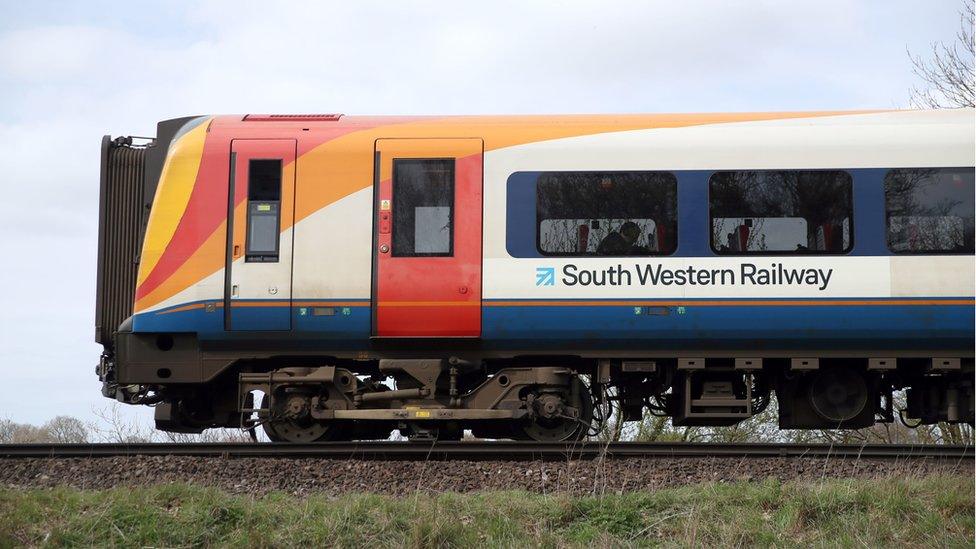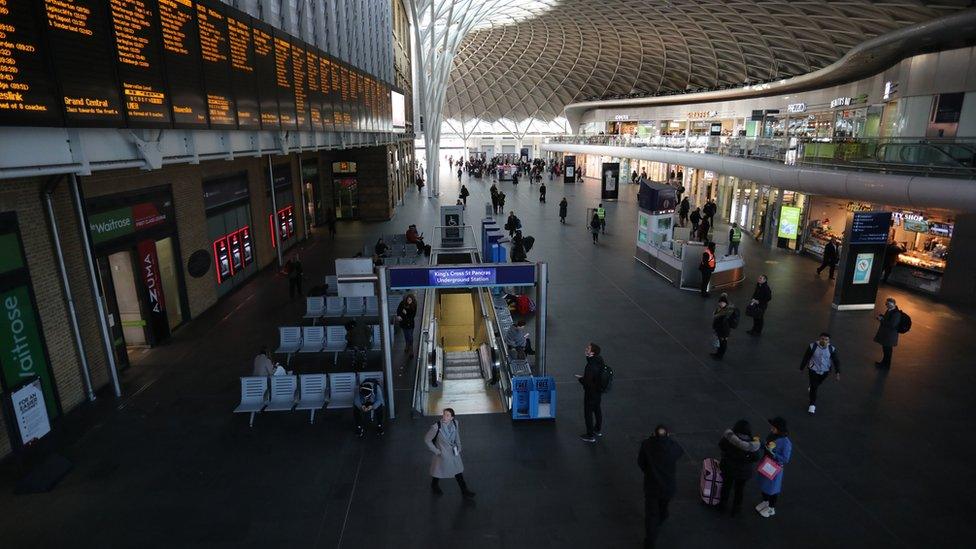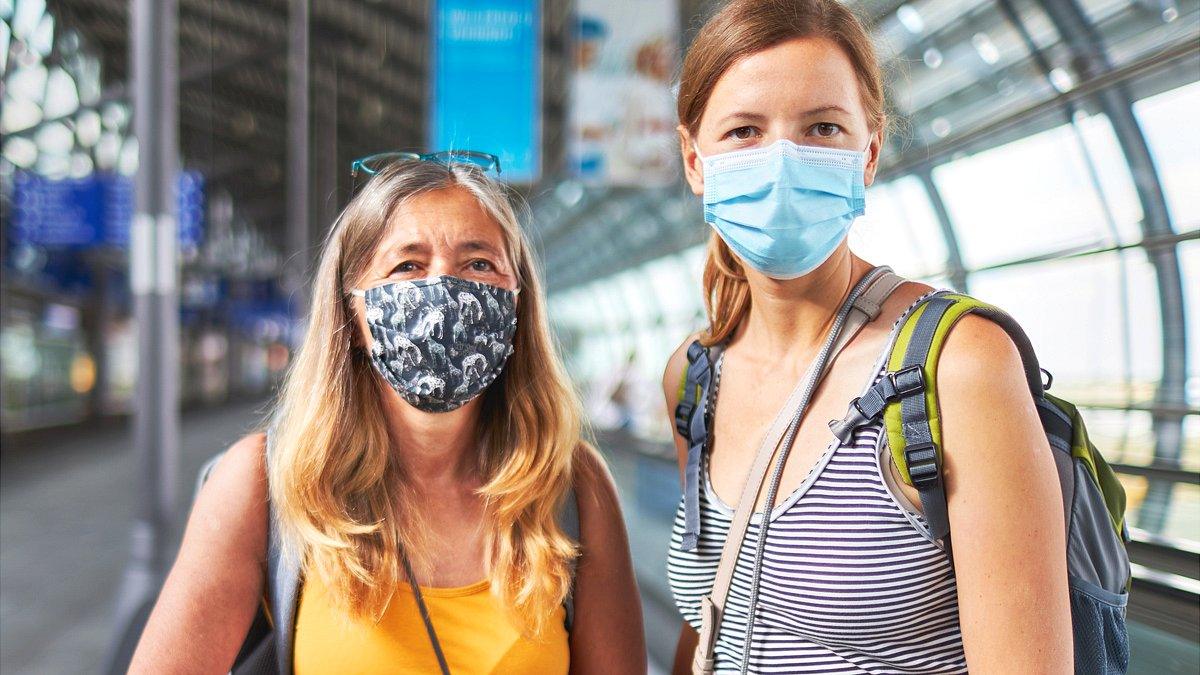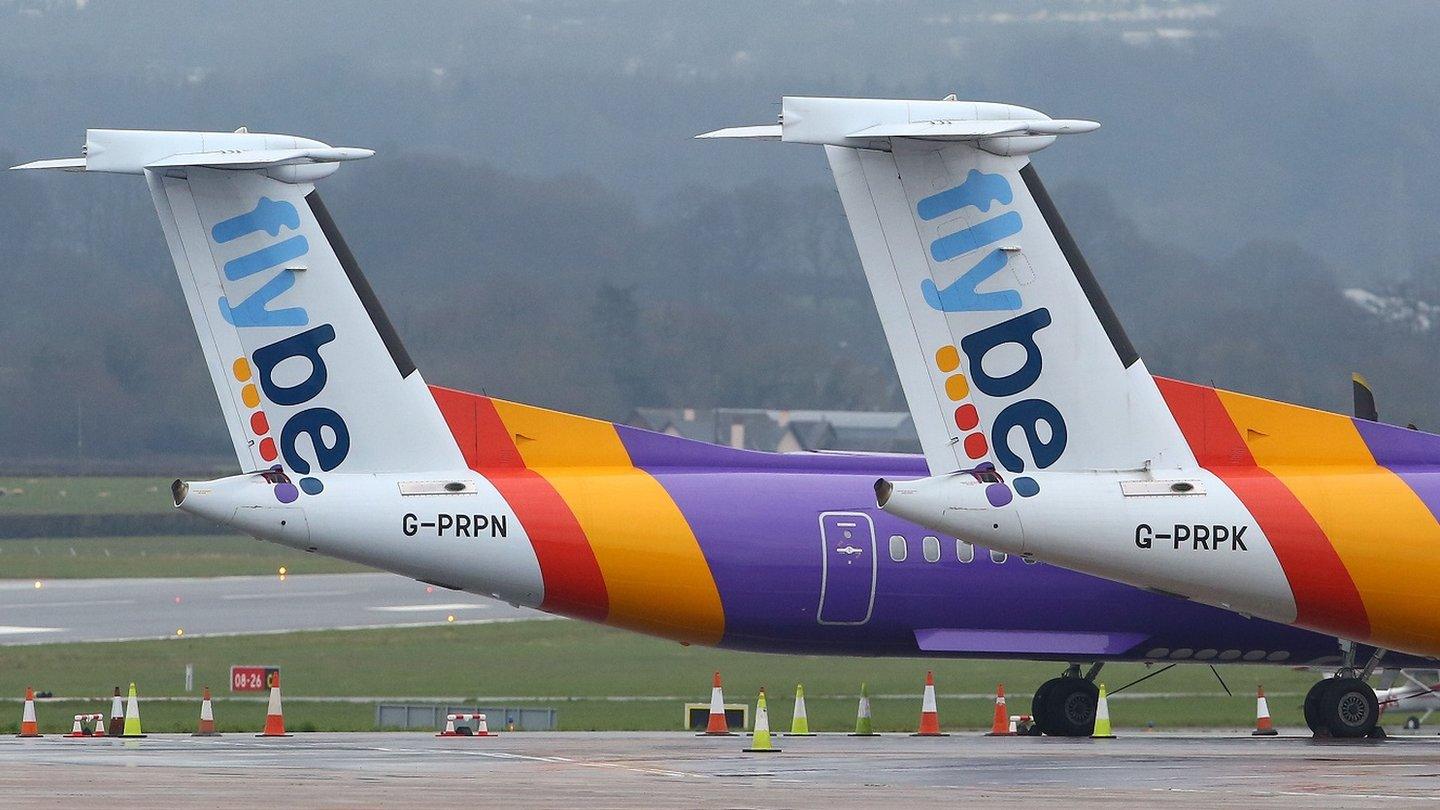Coronavirus: Flexibility needed over train firms, says Shapps
- Published

The government will show flexibility over rail firms' franchise agreements during the coronavirus outbreak, the transport secretary has suggested.
Grant Shapps said he would be meeting rail bosses this week to determine how to "sustain" services amid falling passenger numbers.
He added that there would be no point running "ghost trains", but people would still need to travel.
The BBC understands some firms are in talks to renegotiate their contracts.
Such deals govern how many trains private train companies are obliged to run, as well as restricting how much they can charge for tickets.
Mr Shapps told BBC Radio 4's Today programme companies had seen a "big drop off" in passenger numbers of 18-20% last week.
"We're working with them all to see what it is we'd need to do to sustain them," he added.
"People still need to be able to travel to an extent, and some of that is actually about how many trains are put on a line at any one time and the rest of it."
Asked whether train companies could be freed from their franchise obligations, Mr Shapps replied: "It's quite clearly an exceptional international moment in time.
"We need to be flexible as a country to react to that, and I'll be driven by, amongst other things, the demand.
"There's no point running ghost trains any more than in running ghost planes, but those are conversations which are ongoing."

London's King's Cross station on Monday morning
Under franchise agreements, private train companies operate and charge for services under a range of contractual obligations.
They are required to make payments to the government to run services on parts of the rail network.
The number of trains, ticket prices and the amount companies pay government are all calculated based on assumptions about passenger numbers.
The BBC's transport correspondent Tom Burridge says train companies want the government to give them more wriggle room to keep operating services for essential travel for people working in the emergency services.
Tube numbers
Options under discussion are likely to include a reduction in the number of services and flexibility over the payments that train companies make to government.
Mr Shapps added that train companies were not all in the same situation given some - such as Northern rail - are now being run by the government.
Publically-owned Transport for London said on Monday that passenger numbers were down on the tube last week by 19% and by 10% on buses.
TfL says it will need financial support from the government, and that its best case scenario is that the coronavirus outbreak will cost it £500m.
- Published29 November 2021

- Published6 March 2020
